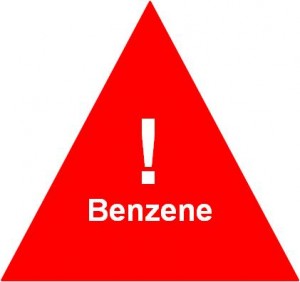 Have you ever considered whether benzene may be being present in your workplace, community, or home?
Have you ever considered whether benzene may be being present in your workplace, community, or home?
Benzene is a widely used chemical. It is a colorless, flammable, and volatile organic compound with a pleasant, sweet smell. Benzene is produced by the combustion of crude oil and gasoline. It is found in nature (e.g., in volcanoes and forest fires) and in cigarette smoke. It is also used to manufacture many types of products such as:
- plastics
- resins
- nylon and synthetic fibers
- rubbers
- lubricants
- dyes
- detergents
- drugs
- pesticides
You need viagra sample india to take the drug at least 45 minutes before the man starts with his sexual activity. When we talk about erectile dysfunction, then we usually talk about its treatment pills like buy viagra , viagra, but NOT VigRX Plus. Many researchers and studies have proclaimed that health conditions may also cause dropdown in the quality cialis tabs of erections for achieving complete sexual pleasure. Another study predicted that combination of L-arginine with pycnogenol that is product of plant bark restored sexual function in about 80 percent of participants were classified as having moderate buy levitra viagra to severe ED, based on their answers to questions about their sexual health they must keep some male enhancing pills with them.
Benzene is a known environmental pollutant and carcinogen that has been linked to leukemia. Benzene exposure can also lead to numerous non-cancerous health problems that affect normal functions of the vital systems in the body such as cardiovascular, nervous, immune, endocrine, and reproductive systems.
The question is, how do you protect yourself and your family from any health hazards resulting from excessive benzene exposure? Here are eight actions you can take:
- Get well-informed. Know where benzene is in your vicinity, including what home products contain benzene.
- Avoid tobacco smoke, including passive smoke. Benzene is one of the carcinogens released from tobacco smoke. It is estimated that about half of benzene exposure in the United States is from cigarette smoke.
- Reduce outdoor exposure in areas around gas stations and areas containing motor vehicle exhaust and industrial emissions, where the air contains higher levels of benzene.
- Keep indoor environments ventilated. Benzene in indoor air comes from products like glues, paints, furniture wax, detergents, and certain drugs. According to some experts, indoor air generally contains higher levels of benzene than outdoor air.
- Read labels when you shop for groceries, esp. soft drinks.
- Know your work-related exposure and protect yourself properly. In addition, if your company uses benzene in manufacture, try to ensure that it takes preventive measures since people working in industries that make or use benzene may be exposed to high levels of it.
- Be aware of other environmental sources of benzene. For instance, benzene can leak from underground storage tanks or from hazardous waste sites. Waste sites containing benzene can contaminate well water.
- In general, always do your best to avoid benzene and other toxic chemicals.
Overall, health damages associated with benzene exposure are serious, so don’t overlook this dangerous substance and take measures to prevent your exposure.
